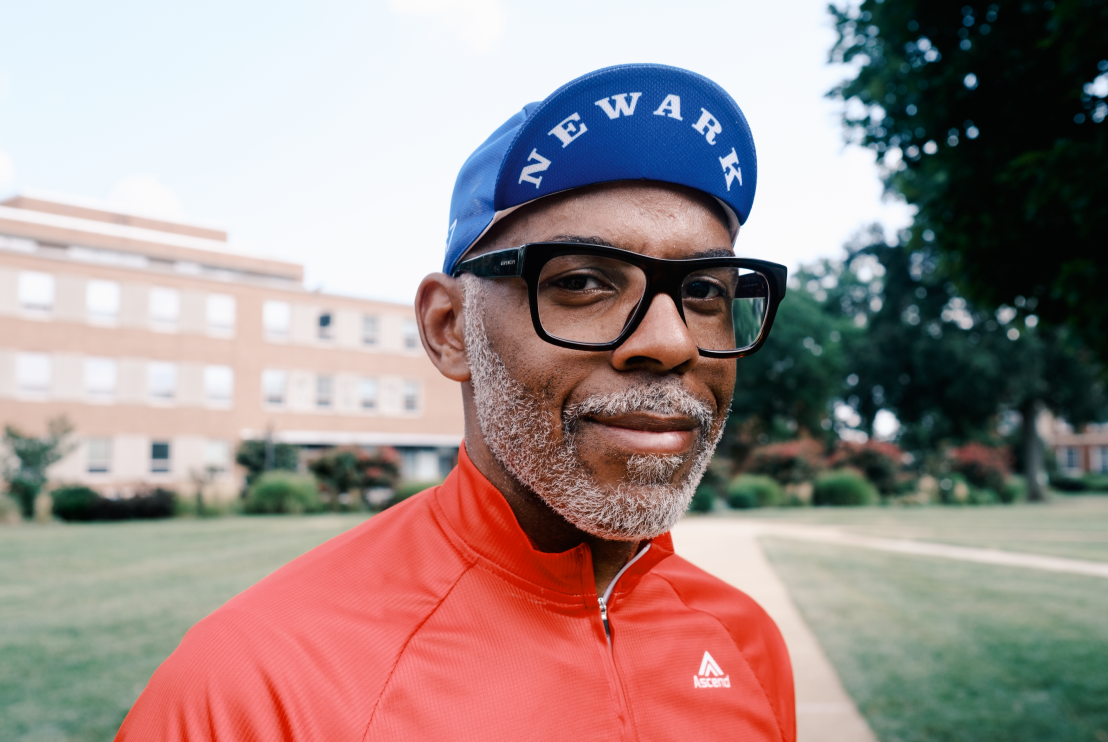Thirty years ago, Hassan Abdus-Sabur left Howard University due to lack of funds. It’s his only regret in life. Now, he’s making it his mission to help the next generation of students thrive at Historically Black Colleges and Universities. Learn how Hassan started a movement with a bicycle, and why he gets to graduate every year.
“Once you get into the mode of giving, the universe opens up more opportunities to give bigger. I want to give away a million before I make a million.“
Continue reading for Hassan’s inspiring story, and learn how you can help his movement.
To donate to Hassan’s HBCU Textbook Fund, created in partnership with GoFindYou, GoFundMe’s platform that celebrates and funds Black joy, click here.
The following is a transcript of Hassan Abdus-Sabur’s interview on the True Stories of Good People podcast, with host Kelsea Little. The transcript has been edited for brevity and clarity.
KELSEA: Let’s start at the very beginning—1991, when you attended a prestigious HBCU, Howard University.
HASSAN: I attended Howard from ‘91 through ‘93. And if you’re doing the math, you’re saying “hold up, he couldn’t have graduated in two years—” and I didn’t. That was always something that sat with me.
I’m from the city of Newark, and it was a rough time there in the 90s. We were first-generation college students, so I didn’t have the resources to go to a school like Howard, which has a rich history and legacy students. So that’s probably my only regret in life—not finishing Howard University.

KELSEA: Just in case any of our listeners aren’t familiar, what does HBCU stand for? Can you expand on the importance of them a little bit?
HASSAN: HBCU stands for Historically Black Colleges and Universities. After the Emancipation Proclamation, there was racial segregation, so a lot of these schools were founded during that time. Emancipation was in 1863, and Howard was founded in 1867. These schools were founded to educate and funnel former Black slaves into larger society.
Over time, HBCUs got bigger and started to offer regular classes and things like that. They started building traditions outside of larger America, and those traditions have lasted. These schools still produce a lot of Black professionals—Xavier produces a large number of Black doctors , North Carolina A&T engineers, Howard University business, and Law and Hampton for dentistry. They’re still very important and are traditionally underfunded, so it’s crucial that we make sure we give back to these schools that gave us so much.
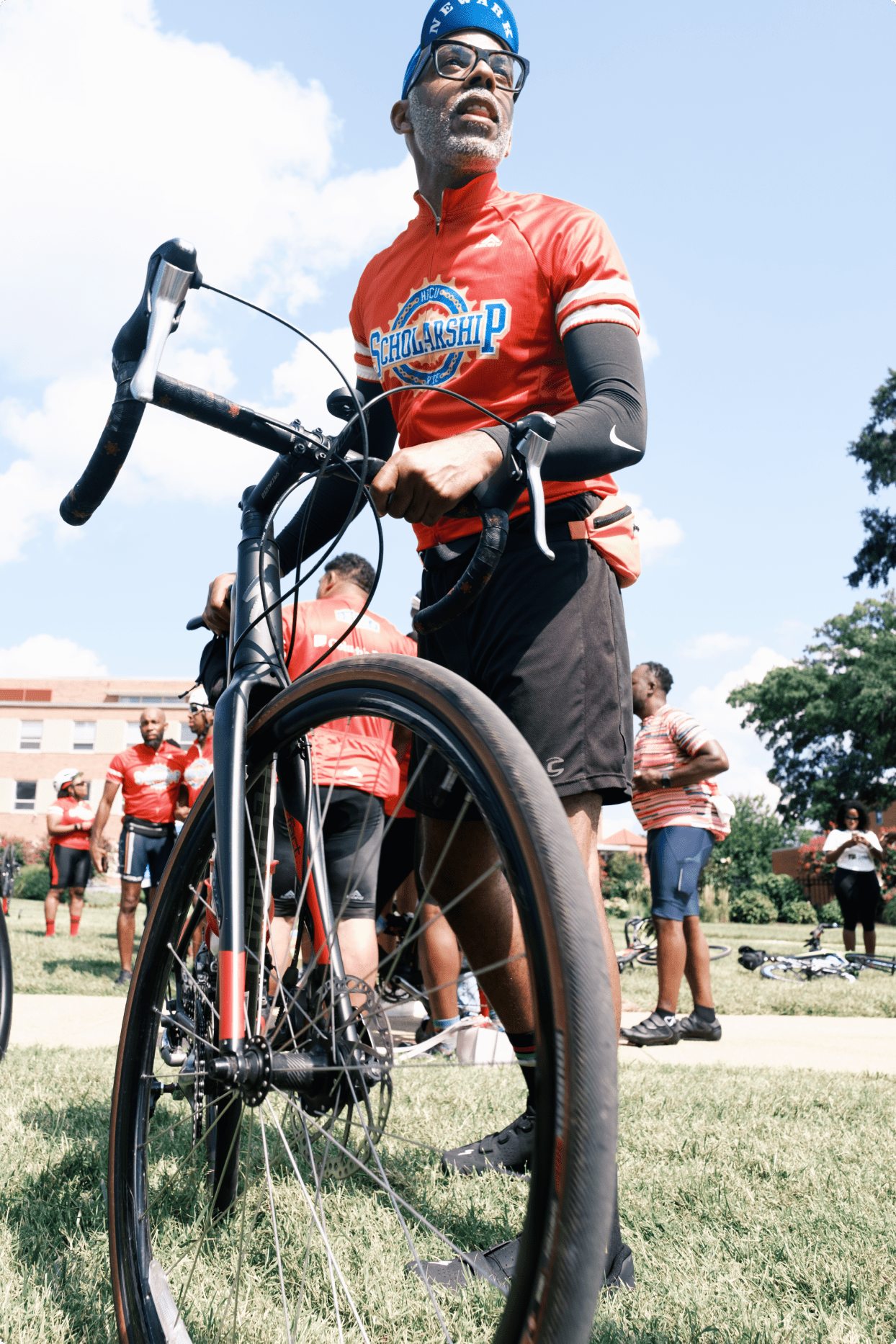
KELSEA: Let’s fast forward to 2020 when you heard that the niece of your former Howard classmate was also accepted to Howard but needed some help covering the costs. Did that make you reflect on your own experience? And what drove you to take action?
HASSAN: He told me they had a GoFundMe for her and then asked me to donate to it. So I donated $150, but then I thought, what if she doesn’t get to her goal? Because her goal was $18,000, and she was at around $2,000.
I’m a bike rider—I’ve always wanted to ride my bike to D.C. So then, attaching her campaign onto it actually made sense. So now I’m riding my bike for Marbella.
We put up a Bike For Marbella website, and people donated. I asked my friend Jamar to ride down to D.C. with me, and he brought three other people, Malik, Nadhir and Salim. So it turned into five guys riding down for Marbella, and we ended up raising $7,000—short of the $18,000 she needed.
Howard shut the campus down because of COVID, though, so she stayed in California and the $7,000 plus whatever she collected was more than enough to cover tuition for the year. So it ended up being successful. And that was the beginning of the HBCU scholarship ride.

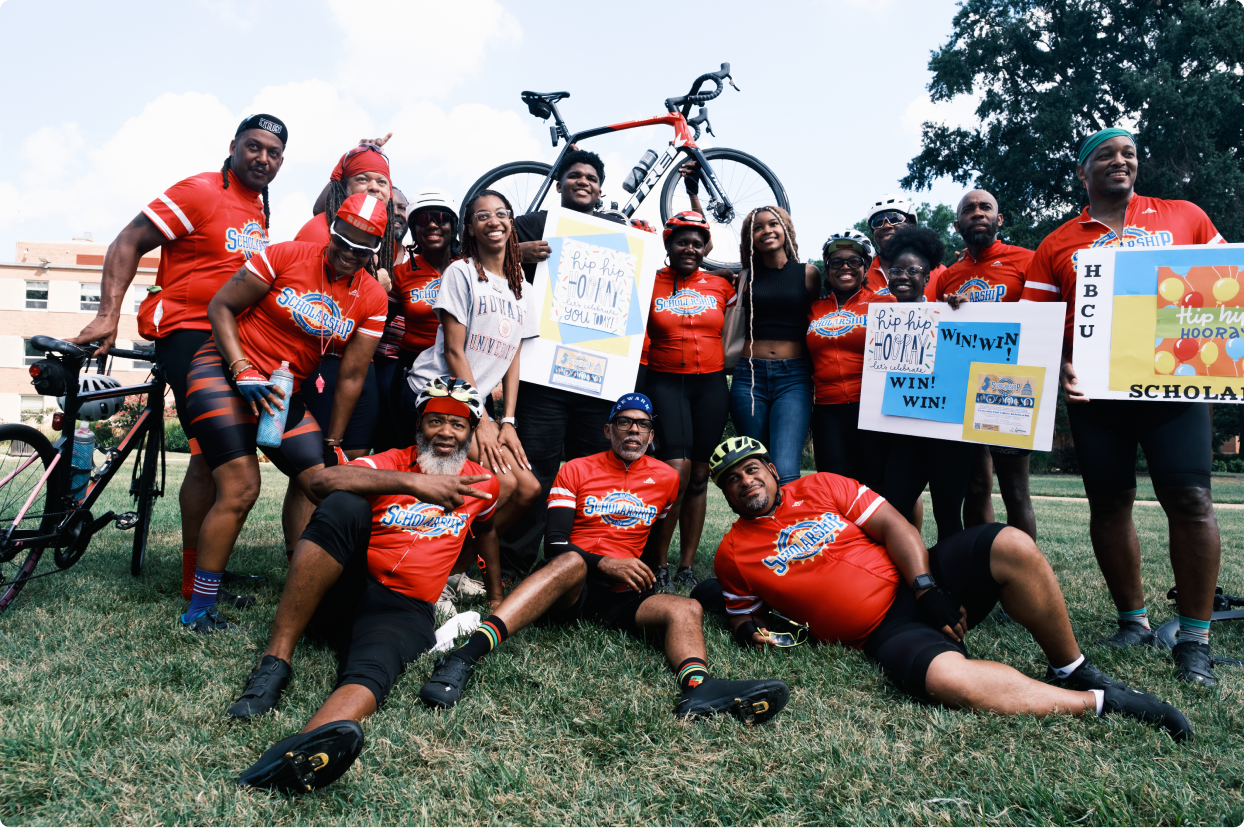
KELSEA: In 2021 and 2022, you started more GoFundMe’s to keep this HBCU Scholarship Bike Ride going and help even more students, and it’s grown exponentially every year. Tell us how you go about organizing this, and how you were able to get 10 times your impact from the first year.
HASSAN: Recruiting other people that have your vision and dream is the important thing. Because we always think that we have to be the super people, but that’s not how we move forward. One of our mottos is an African proverb that says, “If you want to travel faster, travel alone, but if you want to travel farther, travel together.”
Coming together with all these other people who believe in this as much as I do—that’s what really grew the money and the impact.
The real takeaway for me is that it’s not just about me—it’s about us, and helping each other, and how we all can move forward together. I’m trying to figure out how somebody could take this from me in five years. I want one of these kids to graduate and say, “I’m going to do the ride.”
KELSEA: You mentioned that $50,000 was your goal for the 2022 ride, but you actually raised over $63,000 from more than 740 donors. What’s it been like seeing so many people come together to support your GoFundMes over the years? Have there been any particularly touching moments?
HASSAN: There’s been a lot of moments. Last year, this guy was just listening to us talk about the ride before we took off, and he gave us $1,500 on the spot. Along the way, we met a man whose son went to a HBCU, and he gave us $50, then the lady in the store said, “Well, if he gave, I want to give.” It’s like a contagious effect of giving.
Those small donations that people made along the way, who had no connection to the city of Newark or us as riders, to help us reach our goal—that meant a lot.
KELSEA: The 2022 ride just took place a few weeks ago—you actually conclude the ride on the Howard campus. How do you feel in those moments, on a personal level?
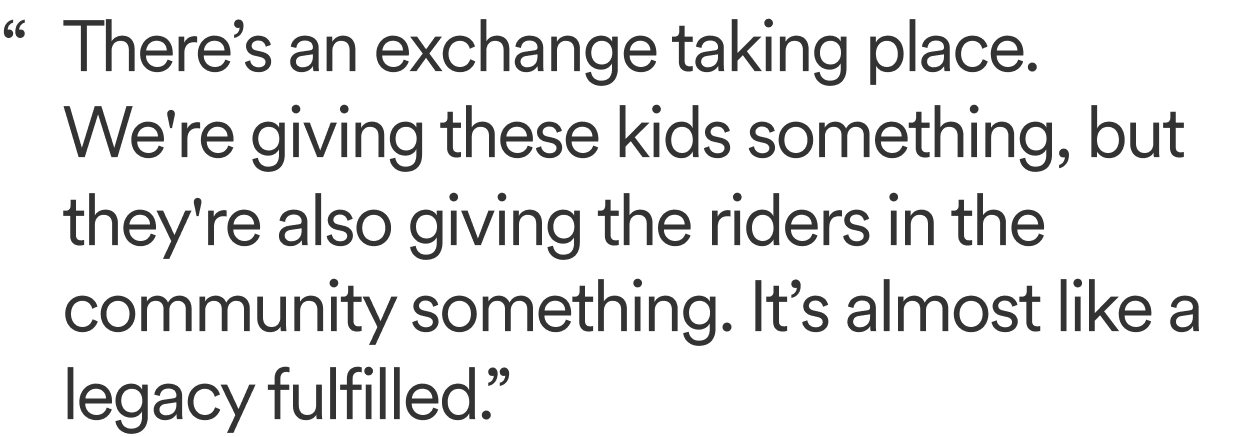
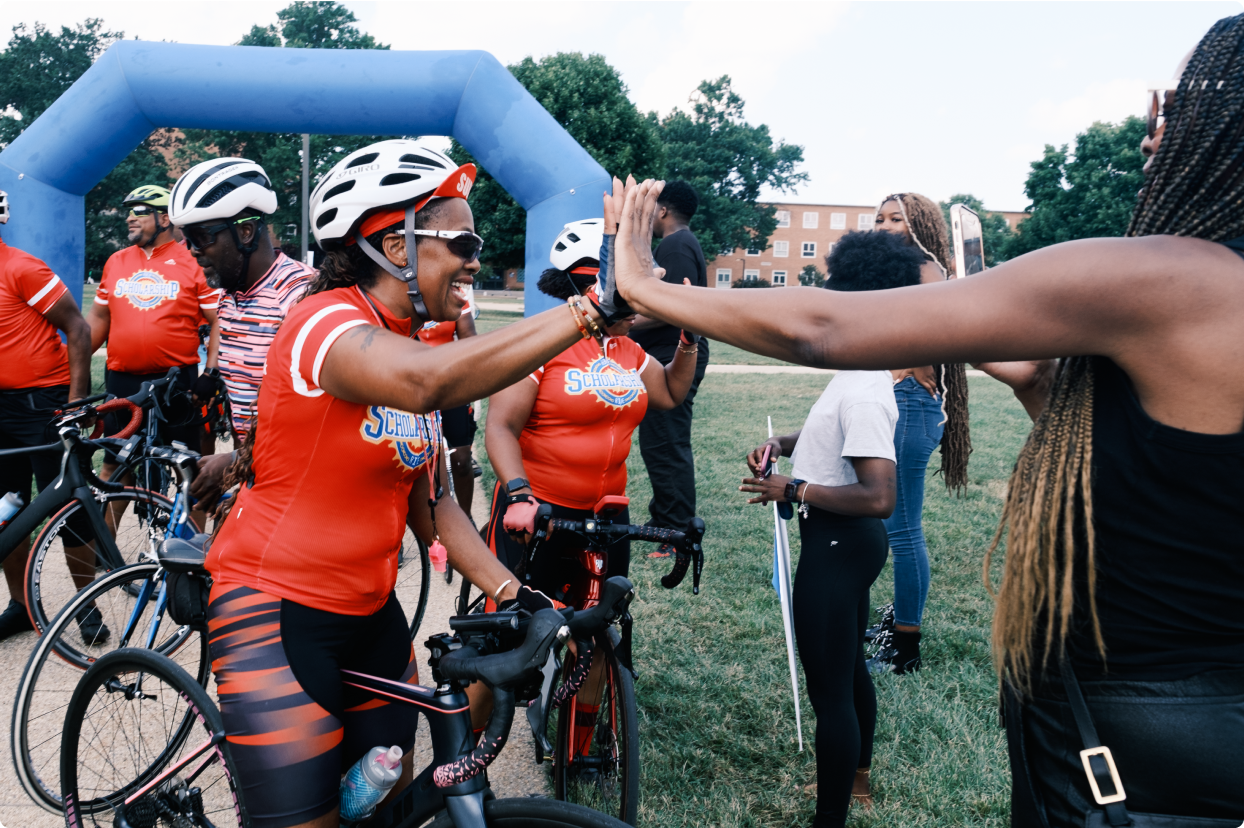
HASSAN: I feel like when I ride onto campus, and everybody’s clapping, that’s my walk-across-the-stage moment. A diploma is an accomplishment after sticking with something for four years, that you did it, and you have this piece of lambskin at the end. So that’s my lambskin at the end: riding across campus and knowing other people were depending on you, and the students are there waiting for you with signs, and your friends are there… That is literally my graduation. So I get to graduate every year.
There’s an exchange taking place. We’re giving these kids something, but they’re also giving the riders in the community something. It’s almost like a legacy fulfilled.
This ride helps me connect with Howard every year, and it helps me help other kids finish. So if I see that kid finish, it’s almost like I finished. Helping them not to fall into the same traps that I fell into is that’s mainly what I do the ride for.
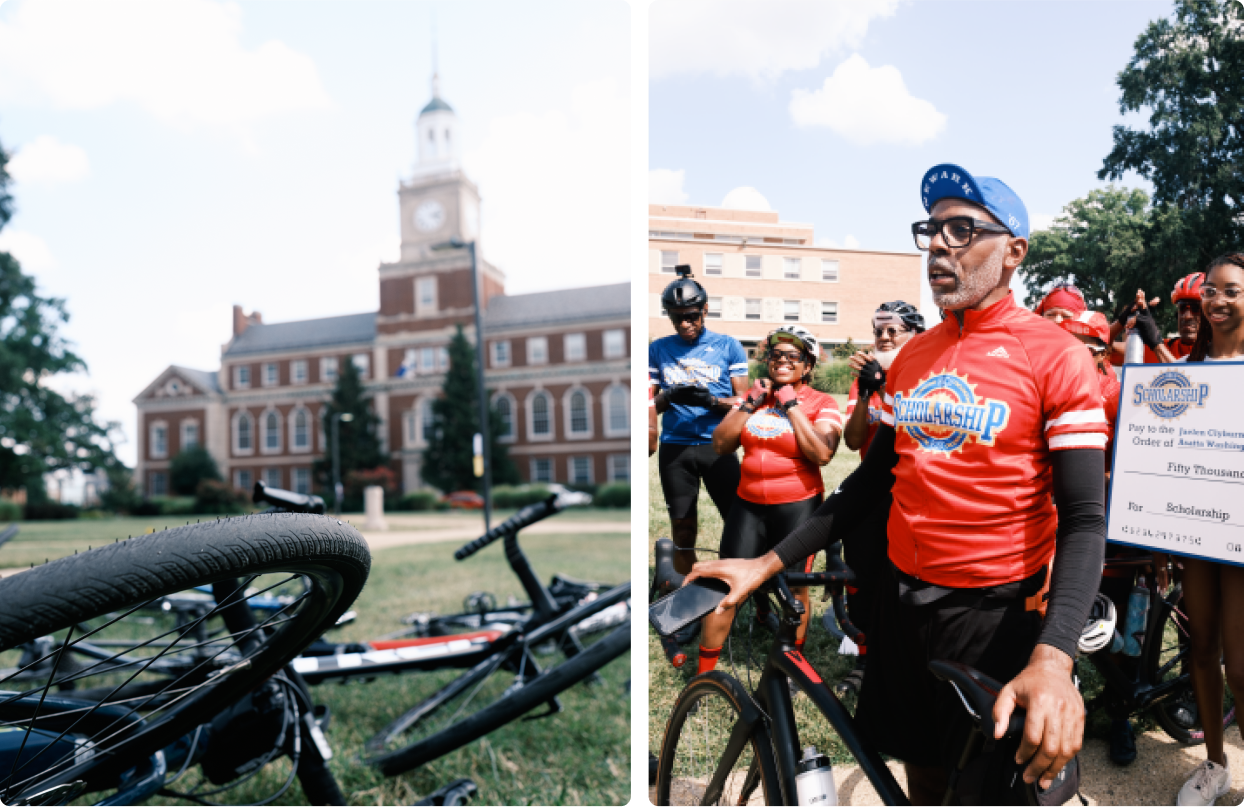
KELSEA: For anyone that feels inspired to help others but maybe needs help themselves getting started, what advice would you give to them?
HASSAN: At my lowest point in my life, I volunteered my time. Once you get into the mode of giving, then I think the universe opens up more opportunities for you to give bigger. I gave when I had nothing to give, and now my motto is, I want to give away a million before I make a million. Just start where you are, wherever that is.


